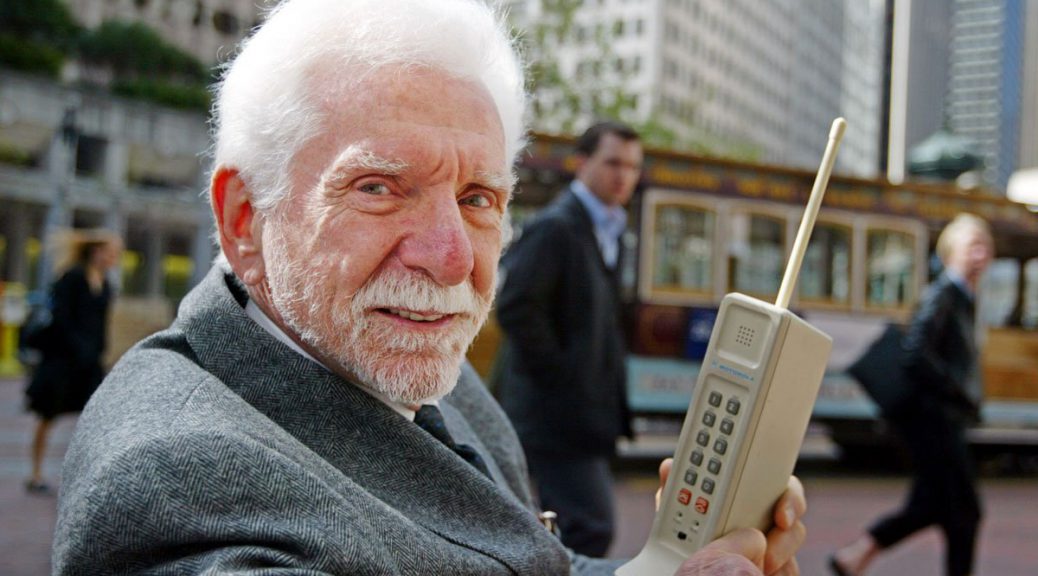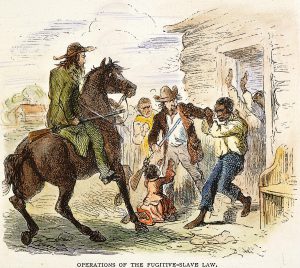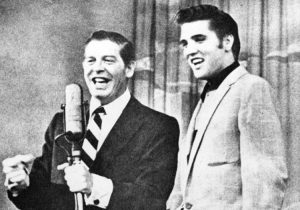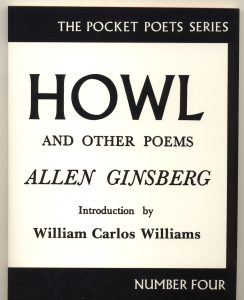April 3 Peace Love Art Activism
BLACK HISTORY
Thomas Sims
April 3, 1851: in 1850, the U.S. Congress passed the Fugitive Slave Act (see September 18, 1850), which sought to force Northern officials to apprehend alleged runaway slaves and ensure their return to slavery in the South. Any official who would “hinder or prevent” the arrest of a runaway slave or “harbor or conceal” a fugitive slave faced a fine of $1000 or six months imprisonment. Captured fugitives – as well as the many free blacks who were erroneously captured under the law as runaway slaves – had no right to a trial by jury and could not defend themselves in court.
In early 1851, Thomas Sims, a slave from Savannah, Georgia, successfully escaped and fled to Boston, Massachusetts, where slavery had been abolished. Only a few weeks later, on April 3, 1851, a United States Marshal and members of the local police force arrested Sims and took him to the federal courthouse. Fearing riots or an escape attempt, authorities surrounded the courthouse with chains and a heavy police force.
The morning after his capture, attorneys for James Potter, the man who purported to own Sims, presented a complaint to the United States Commissioner. After a short proceeding in which several individuals testified that Sims was the slave who had escaped from Potter’s possession, the Commissioner issued an order remanding Sims back to Georgia. Sims sought review from both the Massachusetts Supreme Court and the United States District Court in Boston, but was unsuccessful. On April 12, Sims left Boston and was returned to Savannah, where he promptly received 39 lashes as punishment for seeking freedom. The marshals who escorted Sims to Georgia received praise and a public dinner for their service.
After the Emancipation Proclamation and in the midst of the Civil War, Thomas Sims again escaped from slavery in 1863, this time fleeing Vicksburg, Mississippi, to return to Boston. (BH, see June 21; SR, see Oct 1)
Smith v Allwright
April 3, 1944: the US Supreme Court overturned the Texas state law that authorized the Democratic Party to set its internal rules, including the use of white primaries. The court ruled that the state had allowed discrimination to be practiced by delegating its authority to the Democratic Party. This affected all other states where the party used the rule.
The Democrats had excluded minority voter participation by this means, another device for legal disfranchisement of blacks across the South beginning in the late 19th century.(Oyez article) (BH, see Apr 22; see June 10, 1946)
Thurgood Marshall
April 3, 1960: speaking at Bennett College, NAACP legal counsel Thurgood Marshall urged attendees not to compromise. The protests strengthened after an economic boycott of the two stores was organized by local leaders. (see Greensboro for expanded story)
Military desegregation
April 3, 1962: President Harry Truman had desegregated the U.S. armed services on July 26, 1948. His order did not cover the Reserves or the National Guard, however. The Defense Department on this day corrected that problem with regard to the Reserves and ordered them racially integrated. National Guard units, however, were still not covered. Although some states began integrating National Guard units in 1947, full integration did not come until the 1964 Civil Rights Act.
The issue of whether the federal government or the states control state National Guard units arose again in 2013, when several states refused to comply with Pentagon policy that same-sex spouses of military personnel were entitled to military identification cards. (see Apr 9)
“B Day”
April 3, 1963: “B Day” (for Birmingham) marked the beginning of massive civil rights demonstrations protesting segregation in Birmingham, Alabama. The Birmingham campaign was Rev. Martin Luther King’s major project for 1963. King and other leaders of the Southern Christian Leadership Conference (SCLC) began a freedom campaign of nonviolent direct action to demand an end to segregation in Birmingham public facilities and employment discrimination in the city. The Birmingham protests became one of the iconic events of the civil rights movement, marked by the use of police dogs and fire hoses against civil rights demonstrators, on May 3, 1963. Images of the protests sparked national and international protest.
The demonstrations led directly to President John F. Kennedy’s nationally televised speech, on June 11, 1963, when he called for a federal civil rights bill. The bill eventually became law on July 2, 1964. (BH, see Apr 4; MLK, see Apr 12)
Viola Liuzzo
April 3, 1965: Mrs C L Wilkins, the mother of Collie Leory Wilkins, one of four men held in connection with the death of Mrs. Viola Liuzzo, told President Johnson that he made it impossible for her son to have a fair trial. (see Liuzzo for expanded story)
“I Have Been to the Mountaintop”
April 3, 1968: Martin Luther King spoke publicly for the last time. He delivered the “I Have Been to the Mountaintop.” speech at the Mason Temple (Church of God in Christ Headquarters) in Memphis, Tennessee. [Text] (see Ap4 4]
Rep John Conyers
April 3, 2001: Rep. John Conyers introduced the Matthew Shepard and James Byrd, Jr. Hate Crimes Prevention Act. It was referred to the Subcommittee on Crime. The bill died when it failed to advance in the committee. (next BH, see Apr 7; LGBTQ, see March 28, 2002; Byrd & MSM, see April 2, 2004)
DEATH PENALTY
see Anthony Ray Hinton for full story
April 3, 2015: (from the NYT) nearly 30 years after the Alabama authorities relied on analyses of a handgun and bullets to send him to death row, Anthony Ray Hinton was freed after experts undermined the state’s case.
Hinton’s release from the Jefferson County jail, where he was being held awaiting a new trial that was ordered last year, came close to three decades after a court-appointed lawyer mounted such a feeble defense that the United States Supreme Court ruled it was “constitutionally deficient.”
At the time of Mr. Hinton’s initial trial, his lawyer used a visually impaired civil engineer with little expertise in firearms to rebut prosecutors whose case hinged on linking the handgun found in Mr. Hinton’s home to a string of shootings in and around Birmingham.
Despite pleas by Mr. Hinton’s lawyers, who cited conclusions by newly enlisted specialists, the state refused for years to reconsider the evidence. And so it was not until Friday at 9:30 a.m., one day after a Circuit Court judge ordered his release, that Mr. Hinton exited the jail to hugs, tears and wails of “Thank you, Lord!”
“The State of Alabama let me down tremendously,” Mr. Hinton said in his first interview after his release. “I have no respect for the prosecutors, the judges. And I say that not with malice in my heart. I say it because they took 30 years from me.” (next death penalty, see Apr 29)
April 3 Peace Love Art Activism
see April 3 Music et al for more
LSD
April 3, 1896: Havelock Ellis was among the pioneering investigators of psychedelic drugs and the author of one of the first written reports to the public about an experience with mescaline, which he conducted on himself on April 3, 1896. He consumed a brew made of 3 Echinocacti (peyote) in the afternoon of Good Friday alone in his apartment in Temple, London.
During the experience, lasting for about 24 hours, he noted a plethora of extremely vivid, complex, colourful, pleasantly smelling hallucinations, consisting both of abstract geometrical patterns and definite objects such as butterflies and other insects. He published the account of the experience in The Contemporary Review in 1898 (Mescal: A New Artificial Paradise).
The article’s title alludes to an earlier work on the effects of mind-altering substances, the 1860 book Les Paradis artificiels by French poet Charles Baudelaire (containing descriptions of experiments with opium and hashish). (see November 16, 1938)
Elvis Presley
On April 3, 1956: NBC broadcast the Milton Berle Show live from the deck of the USS Hancock while it was docked at the Naval Air Base in San Diego, California. The show was one of the most popular programs on TV. This one starred Esther Williams, Berle’s comedy sidekick, Arnold Stang and the Harry James Orchestra featuring Buddy Rich.
More importantly, Elvis appeared. Afterwards the Elvis Presley Fan Club sent members a 12″ x 18 1/2″ TV/Concert double-sided announcement / promotional handbill from the Colonel to publicly thank Milton Berle for having Elvis perform on his program and to promote the upcoming concerts in San Diego.
Elvis played “Heartbreak Hotel,” “Money, Honey,” and “Blue Suede Shoes.” An estimated 25% of the Americans tuned in to hear him. (see Apr 4)
Howl
April 3, 1957: the American Civil Liberties Union announced it would defend Allen Ginsberg’s book Howl against obscenity charges. (see June 3)
“Blue Moon”
April 3 – 23, 1961: written by Richard Rodgers and Lorenz Hart in 1934, “Blue Moon” by the Marcels #1 Billboard Hot 100.
The song had been a hit twice already in 1949 with by Billy Eckstine and Mel Tormé.
Over the years, “Blue Moon” has been covered by various artists including versions by Frank Sinatra, Billie Holiday, Elvis Presley, the Mavericks, Dean Martin, The Supremes, and Rod Stewart.
John Lennon
April 3, 1973: John Lennon appealed of the order to leave the United States by May 21 and sought to show that the Justice Department’s legal arguments in the action against him had made it “not just a John-and-Yoko case” but one where “many cases hinge on the outcome.” (see “in May”)
April 3 Peace Love Art Activism
Vietnam
April 3, 1965: an American campaign against North Vietnam’s transport system began. In a month-long offensive, Navy and Air Force planes hit bridges, road and rail junctions, truck parks and supply depots. (see April 6)
April 3 Peace Love Art Activism
Technological Milestone
April 3, 1973: in New York City Martin Cooper made the first handheld cellular phone call . (2010 CNN article) (see December 17, 1976)
April 3 Peace Love Art Activism
Symbionese Liberation Army
April 3, 1974: In a fifth tape recording, sent to KSAN radio station 59 days after the kidnapping, Patty Hearst denounces her family and claims allegiance to the S.L.A. She takes the guerrilla name “Tania.” Her family claims she has been brainwashed. (see Patty Hearst for expanded story)
April 3 Peace Love Art Activism
Falklands War
April 3, 1982: the UN Security Council condemned the invasion (Telegraph chronology article) (see Apr 5)
April 3 Peace Love Art Activism
Iraq War II
April 3, 2003: U.S. forces seized control of Bagdad’s Saddam International Airport. (see April 9)
April 3 Peace Love Art Activism
LGBTQ
April 3, 2009: the Iowa Supreme Court handed down a unanimous decision in favor of the freedom to marry in Varnum v. Brien. The ruling went into effect on April 27, and same-sex couples begin marrying. (see April 7)
April 3 Peace Love Art Activism
Environmental Issues
April 3, 2018: the E.P.A. announced that it would reconsider and most likely roll back, Obama-era rules requiring automakers to hit ambitious emissions and mileage standards by 2025. The statement also implied that the Trump administration would take on California’s authority to set its own rules. (see May 1)
April 3 Peace Love Art Activism
Immigration History
April 3, 2018: the White House announced that President Trump planned to deploy the National Guard to the southern border to confront what it called a growing threat of illegal immigrants, drugs and crime from Central America after the president for the third consecutive day warned about the looming dangers of unchecked immigration. (see Apr 6)
April 3 Peace Love Art Activism
Crime and Punishment
Barr Expands Early Release of Inmates at Prisons Seeing More Coronavirus Cases
April 3, 2020: Attorney General William P. Barr ordered the Bureau of Prisons to expand the group of federal inmates eligible for early release and to prioritize those at three facilities where known coronavirus cases had grown precipitously, as the virus threatens to overwhelm prison medical facilities and nearby hospitals.
Barr wrote in a memo to Michael Carvajal, the director of the Bureau of Prisons, that he was intensifying the push to release prisoners to home confinement because “emergency conditions” created by the coronavirus have affected the ability of the bureau to function.
He directed the bureau to prioritize the release of prisoners from federal correctional institutions in Louisiana, Connecticut and Ohio, which comprise the bulk of the system’s 91 inmates and 50 staff members who have tested positive for the coronavirus. [NYT article] (next C & P, see May 24)
April 3 Peace Love Art Activism
Trump Impeachment
April 3, 2020: NPR reported that President Trump fired Intelligence Community Inspector General Michael Atkinson.
In a letter to the Senate Intelligence committee chairs, Trump said he “no longer” has the fullest confidence in Atkinson. The letter said the removal will be effective “30 days from today.”
Atkinson first raised concerns about a complaint involving President Trump’s communications with Ukraine, which led to the impeachment inquiry. (next TI, see or see TIA for expanded chronology)
April 3 Peace Love Art Activism
Cannabis
April 3, 2023: in addition to the National Basketball Association (NBA) removing marijuana from its banned substances list for players—it also planned to let players promote and invest in cannabis companies.
That was the latest detail that surfaced in reporting on the new seven-year collective bargaining agreement which was also expected to remove drug testing requirements for marijuana.
With respect to league’s broader marijuana reform, it would formally codify what has been the league’s decision to temporarily suspend cannabis testing for the past three seasons. [MM article] (next Cannabis, see orsee CAC for expanded chronology)




